Frontpage News (3259)
Global Efforts To Eradicate Polio Suffers Setback With New Case In "Laos" (NOT Lagos!)
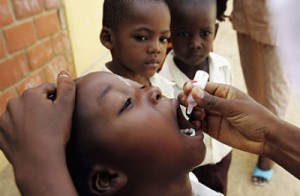
World Health Organization (WHO) yesterday announced that Laos has suffered a case of vaccine- derived polio which is a new setback to a global effort to eradicate the crippling disease after the virus resurfaced in Ukraine and Mali. The WHO said an 8-year-old boy died of the disease on September 11, and genetic sequencing suggested the virus strain has been circulating in the area of Bolikhamxay province, which has low immunization rates, for more than two years. There is no cure for polio, which attacks the nervous system and could cause irreversible paralysis within hours of infection. But a global vaccination campaign has all but beaten the wild polio virus, with only Pakistan and Afghanistan reporting cases of wild polio virus infection this year.
Specialists have warned that vaccine-derived cases – such as this one in Laos and previous ones in Ukraine and Mali – could hamper progress towards global eradication. The WHO stressed that “ending polio for good requires eliminating both wild and vaccine-derived polio.” It added, however, that because of relatively limited travel to and from this area,
 The director general, National Agency for the Control of AIDS (NACA), Prof John Idoko, has said that Nigeria is at a critical stage of ending the HIV/AIDS epidemic. According to him, having reached the progress of halting HIV/AIDS transmission to less than 4 per cent in 2010, the country is now on its way to eliminating the scourge. Idoko made these disclosures yesterday in Abuja when he led the management team of the agency on a courtesy visit to the headquarters of LEADERSHIP Newspapers Group.
The director general, National Agency for the Control of AIDS (NACA), Prof John Idoko, has said that Nigeria is at a critical stage of ending the HIV/AIDS epidemic. According to him, having reached the progress of halting HIV/AIDS transmission to less than 4 per cent in 2010, the country is now on its way to eliminating the scourge. Idoko made these disclosures yesterday in Abuja when he led the management team of the agency on a courtesy visit to the headquarters of LEADERSHIP Newspapers Group.
The NACA DG who solicited partnership with LEADERSHIP Group, explained that at this stage, information going out is very critical with regards to passing the right messages across. He said, “The number of new infections is coming down; the number of people dying from HIV is coming down and one of the big areas we are struggling with, interrupting transmission from HIV positive women to their babies is also coming down. So, we are very grateful to your paper and all the others that have supported us.
 Worried that over 40 per cent of Nigeria’s adult population is hypertensive; the Federal Ministry of Health has entered into partnership with Neimeth Pharmaceuticals which sees the price of antihypertensive drugs cut by half. According to the Director of Food and Drug Services at the Ministry, Gloria Chukwumah, “4.5 million Nigerians over the age of 15 are hypertensive. The prevalence is much more in the urban than in the rural areas and it affects 40 per cent of the adult population.”
Worried that over 40 per cent of Nigeria’s adult population is hypertensive; the Federal Ministry of Health has entered into partnership with Neimeth Pharmaceuticals which sees the price of antihypertensive drugs cut by half. According to the Director of Food and Drug Services at the Ministry, Gloria Chukwumah, “4.5 million Nigerians over the age of 15 are hypertensive. The prevalence is much more in the urban than in the rural areas and it affects 40 per cent of the adult population.”
She stated this yesterday at the inauguration of the FITGAH (Fight the Good Fight Against Hypertension) Partnership Working Committee by the permanent secretary of the Ministry, Mr Linus Awute saying the scope of this partnership which will cut across the urban and rural divide will involve mass screening and isolation and medicine administration at lower cost up to 50 per cent for free. He said the committee will work to bring other organisations into the fight against hypertension to promote efficient healthcare delivery system through rational drug use.
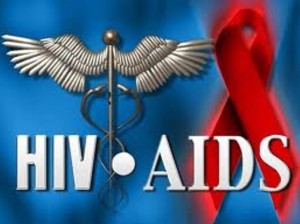 The Network of People Living With HIV/AIDS (NEPWHAN), has said that out of the estimated 3.5 million Nigerians living with HIV/AIDS, only about 700,000 have access to anti-retroviral treatment, meaning that 2.8 million Nigerians have no access to treatment. It also raised the alarm that these 2.8 million people living with HIV may be on their way to untimely death if the government does not act fast to arrest the situation. This was disclosed yesterday in Abuja by the chairman of NEPWHAN’s board of trustees, Abdulrahman Momodu, at the inauguration of new executives of the association.
The Network of People Living With HIV/AIDS (NEPWHAN), has said that out of the estimated 3.5 million Nigerians living with HIV/AIDS, only about 700,000 have access to anti-retroviral treatment, meaning that 2.8 million Nigerians have no access to treatment. It also raised the alarm that these 2.8 million people living with HIV may be on their way to untimely death if the government does not act fast to arrest the situation. This was disclosed yesterday in Abuja by the chairman of NEPWHAN’s board of trustees, Abdulrahman Momodu, at the inauguration of new executives of the association.
He said though the board of trustees, since the establishment of NEPWHAN in 1998 has refrained from making public statements on issues, there were compelling reasons now why the association must speak so as to draw the attention of the government to their plight, whose existence is now being threatened by declining care and support. He said, “it is on this note that we passionately appeal to Mr President to do all within his power to prevent avoidable death.”
 UNICEF says not less than 800 of about 1,400 child deaths Nigeria are caused by diarrhoea daily which could be attributed to poor sanitation and inadequate water. This is contained in a statement signed by the Chief of Communication, UNICEF, Ms Doune Porter, on Thursday inAbuja and made available to the News agency of Nigeria (NAN). It said that children at the first month of their lives were very vulnerable to diseases easily transmitted through unwashed hands. "Over 800 of the approximately 1,400 child deaths from diarrhoea each day can be attributed to inadequate water, sanitation or hygiene.
UNICEF says not less than 800 of about 1,400 child deaths Nigeria are caused by diarrhoea daily which could be attributed to poor sanitation and inadequate water. This is contained in a statement signed by the Chief of Communication, UNICEF, Ms Doune Porter, on Thursday inAbuja and made available to the News agency of Nigeria (NAN). It said that children at the first month of their lives were very vulnerable to diseases easily transmitted through unwashed hands. "Over 800 of the approximately 1,400 child deaths from diarrhoea each day can be attributed to inadequate water, sanitation or hygiene.
"Infants in the first months of life are particularly vulnerable to diseases transmitted by unwashed hands,” it said. According to the statement, an average of 82 per cent of people washes their hands before eating, while only 53 per cent of people washed their hands with soap after defecation. It also said that only about 14 per cent of people washed their hands with soap after cleaning a child’s faeces which posed a serious public health risk. "Regular hand washing with soap after using toilet, after changing children’s nappies and before eating or handling food saves more lives than any single vaccine or medical intervention.
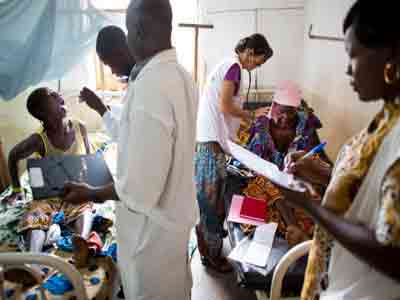 AS part of efforts to tackle capacity gaps in the health sector and develop the next generation of healthcare leaders who will excel in governance, management and quality healthcare service provision, a new private sector initiative, Healthcare Leadership Academy (HLA), has emerged. An intervention of the Private Sector Health Alliance of Nigeria (PSHAN), Health Strategy and Delivery Foundation (HSDF), alongside Cambridge University, Duke University, Lagos Business School, Institute for Healthcare Improvement (IHI) based in Cambridge, Massachusetts, United States, and advisory, research and capacity development for the health sector (EpiAFRIC), HLA seeks to plug leadership gaps in the health sector and reduce the level of health tourism from Nigeria to other parts of the world.
AS part of efforts to tackle capacity gaps in the health sector and develop the next generation of healthcare leaders who will excel in governance, management and quality healthcare service provision, a new private sector initiative, Healthcare Leadership Academy (HLA), has emerged. An intervention of the Private Sector Health Alliance of Nigeria (PSHAN), Health Strategy and Delivery Foundation (HSDF), alongside Cambridge University, Duke University, Lagos Business School, Institute for Healthcare Improvement (IHI) based in Cambridge, Massachusetts, United States, and advisory, research and capacity development for the health sector (EpiAFRIC), HLA seeks to plug leadership gaps in the health sector and reduce the level of health tourism from Nigeria to other parts of the world.
Co-chair, PSHAN, Dr. Muhammad Ali Pate, at the launch of the initiative told selected participants: “There is leadership and management deficit at different levels of the health care system that impede the delivery of expected quality care. This developmental gap is made evident by the low productivity and skill set of healthcare workers and the poor financial health of the institutions they manage.” The PSHAN, in a statement, noted that PSHAN and HSDF brokered and convened partners and institutions to develop the HLA to incorporate leadership, quality improvement and private sector business management approaches in the provision of quality care and governance of institutions.
How Perm Sec Wanted Leaving Health Ministry Fearing Ebola Resurgence
 The Permanent Secretary of the Federal Ministry of Health, Mr Linus Awute had made unsuccessful underground plans to leave the ministry fearing that Ebola Virus Disease which Nigeria contained its spread in October 2014 would resurface. It would be recalled that Ebola was introduced into Nigeria on 20 July 2014 when an infected Liberian man, Patrick Sawyer arrived by aeroplane into Lagos. The man, who died in hospital 5 days later, set off a chain of transmission that infected a total of 19 people, of whom 7 died.
The Permanent Secretary of the Federal Ministry of Health, Mr Linus Awute had made unsuccessful underground plans to leave the ministry fearing that Ebola Virus Disease which Nigeria contained its spread in October 2014 would resurface. It would be recalled that Ebola was introduced into Nigeria on 20 July 2014 when an infected Liberian man, Patrick Sawyer arrived by aeroplane into Lagos. The man, who died in hospital 5 days later, set off a chain of transmission that infected a total of 19 people, of whom 7 died.
According to World Health Organistion (WHO) recommendations, the end of an Ebola virus disease outbreak in a country can be declared once 42 days have passed and no new cases have been detected. The 42 days represents twice the maximum incubation period for Ebola (21 days). This 42-day period starts from the last day that any person in the country had contact with a confirmed or probable Ebola case. And on October 20 2014, Nigeria reached that 42-day mark and is now considered free of Ebola transmission.
 CureChat is a new app aimed at Reducing Loss of Lives caused by Ignorance through Effective Public Health Awareness Providing for the long needed technological solution to bridge the gap between doctors and patients in Nigeria, the new app CureChat was launched in September 2015. Malnutrition, Malaria, Typhoid among other illnesses have been burning problems in Nigeria and the bordering countries in Africa for many decades without complete eradication. These public health issues have been a major burden on the country’s economy affecting the day-to-day life of every citizen.
CureChat is a new app aimed at Reducing Loss of Lives caused by Ignorance through Effective Public Health Awareness Providing for the long needed technological solution to bridge the gap between doctors and patients in Nigeria, the new app CureChat was launched in September 2015. Malnutrition, Malaria, Typhoid among other illnesses have been burning problems in Nigeria and the bordering countries in Africa for many decades without complete eradication. These public health issues have been a major burden on the country’s economy affecting the day-to-day life of every citizen.
CureChat Ltd is up for the Challenge Lack of health awareness has been a major cause of the number of deaths reported in Nigeria yearly. There is a clear need to identify an approach to creating public health awareness in a rather effective manner in order to reduce the number of loss of lives caused by ignorance in Nigeria and Africa. CureChat Ltd pitches their new startup under the limelight that people nowadays have easier access to the internet and new technology than in the past, which can be helpful in creating more awareness on public health.
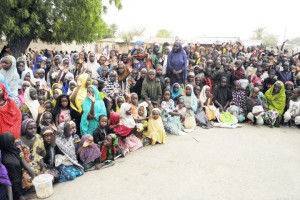 In its final push to eradicate polio in the country, the federal government says it’s currently carrying out routine immunisation exercise in 96 internally displaced camps (IDPs) across the country. This was disclosed yesterday in Abuja by the executive director, National Primary Health Care Development Agency (NPHCDA), Dr Ado Mohammed ,to Flagg off the October 2015 Polio Immunisation Plus Days. He said that in the Federal Capital Territory, the Feeral Government through the agency has provided four rounds of the immunisation campaign so that every eligible child would be reached during the programme.
In its final push to eradicate polio in the country, the federal government says it’s currently carrying out routine immunisation exercise in 96 internally displaced camps (IDPs) across the country. This was disclosed yesterday in Abuja by the executive director, National Primary Health Care Development Agency (NPHCDA), Dr Ado Mohammed ,to Flagg off the October 2015 Polio Immunisation Plus Days. He said that in the Federal Capital Territory, the Feeral Government through the agency has provided four rounds of the immunisation campaign so that every eligible child would be reached during the programme.
He also disclosed that the next polio immunisation campaign in 11 polio vulnerable states, Bauchi, Borno, Jigawa, Kano, Kaduna, Katsina, Kebbi, Niger, Sokoto, Yobe and Zamfara commences tommorrow. According to Ado, a total of 32 million children are being targeted during the campaign across the vulnerable states. He also solicited for the continued support of all Nigerians, especially the press to be advocates of continous vaccination of children in the country until the World Health Organisation (WHO) certifies Nigeria a polio-free country in 2017.
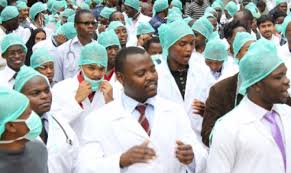 The Health Ministry is an inter-professional sector, previous health ministers seem to forget this simple fact, they focus all their energy trying to serve the interest of the NMA at the expense of other professional interest in the health sector. Nigeria need a change from the past, we need a minister who will separate his/her personal professional interest and commitments from affecting his duties to Nigerian people, and make qualityhealth care delivery utmost priority instead of welfare and interest of Doctors. Most ministers in recent past have failed the sector and country due to their inability to remove their primary professional constituency interest from interfering with their roles as ministers of health, they left other professional group to languish in neglect resulting in many unnecessary industrial unrest.
The Health Ministry is an inter-professional sector, previous health ministers seem to forget this simple fact, they focus all their energy trying to serve the interest of the NMA at the expense of other professional interest in the health sector. Nigeria need a change from the past, we need a minister who will separate his/her personal professional interest and commitments from affecting his duties to Nigerian people, and make qualityhealth care delivery utmost priority instead of welfare and interest of Doctors. Most ministers in recent past have failed the sector and country due to their inability to remove their primary professional constituency interest from interfering with their roles as ministers of health, they left other professional group to languish in neglect resulting in many unnecessary industrial unrest.
They ended up becoming ministers of doctors, rather than ministers of health, a ministerial candidate was asked during the ongoing senate screening what he will do to prevent industrial unrest in the health sector and he started talking about engaging resident doctors because he is a medical doctor, how about the nurses, pharmacist, medical scientists, physiotherapist …An example is the recent past Minister of Health, Prof. Oyebuchi Chukwu, who refused to obey all court rulingsfavouring other health professionals, but will quickly implement those favouring his immediate constituency the NMA and MDCN.
More...
Enugu State Govt. To Upgrade School Of Health Technology, District Hospitals
 The Enugu State Government said it would upgrade the School of Health Technology and all district hospitals in the state for improved provision of healthcare. The state’s Commissioner for Health, Dr Sam Ngwu, made the disclosure on Tuesday when he visited the school, located at Oji-River, as well as Oji-River district hospitals. He said that the upgrade had been long-overdue if sustainable development goal on health would be achieved. Ngwu said that the Enugu governor’s vision for all the health facilities in the state was to see that citizens were adequately cared for through the provision of efficient and affordable healthcare services. The commissioner said “Gov. Ifeanyi Ugwuanyi of Enugu State has assured that he will enhance the standard of all hospitals and facilities in the School of Health Technology to meet 21st century standard.
The Enugu State Government said it would upgrade the School of Health Technology and all district hospitals in the state for improved provision of healthcare. The state’s Commissioner for Health, Dr Sam Ngwu, made the disclosure on Tuesday when he visited the school, located at Oji-River, as well as Oji-River district hospitals. He said that the upgrade had been long-overdue if sustainable development goal on health would be achieved. Ngwu said that the Enugu governor’s vision for all the health facilities in the state was to see that citizens were adequately cared for through the provision of efficient and affordable healthcare services. The commissioner said “Gov. Ifeanyi Ugwuanyi of Enugu State has assured that he will enhance the standard of all hospitals and facilities in the School of Health Technology to meet 21st century standard.
“There is an urgent need for the provision and proper maintenance of new technological equipment and employment of qualified health personnel that will use the equipment properly to avoid retrogression in life saving activities in the state hospitals.’’ He urged doctors and other health workers to avoid conservative healthcare delivery and work with passion to achieve the purpose for which the health facilities were provided for. He promised to provide power generating set to the Oji River hospital to facilitate their work. Responding, the Chairman of Oji River Local Government Area, Mr Jideofor Onyemaechi, promised to offset the hospital bills of indigent patients in the district hospital in his area.
1 Year After Ebola: FG Eulogises Dr Adadevoh, Global Partners, Others
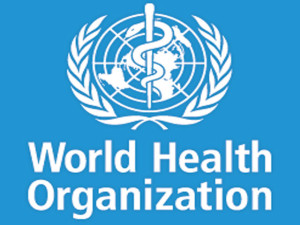 It has been one year since the World Health Organisation (WHO) declared Nigeria free of Ebola Virus Disease but the federal government has not forgotten the efforts of Dr Stella Adadevoh of First Consultant Hospital in Lagos and other partners who made the success story possible. Adadevoh was the doctor who helped to stop the spread of Ebola in Nigeria by insisting on strict isolation of the index case, Patrick Sawyer, but later died after contracting the virus. In a press briefing yesterday on the first anniversary of declaration of Nigeria as Ebola-free, the permanent secretary of the Federal Ministry of Health, Mr. Linus Awute, said the response to the outbreak, which brought together the finest hands in the control, showed the true capacity of Nigeria.
It has been one year since the World Health Organisation (WHO) declared Nigeria free of Ebola Virus Disease but the federal government has not forgotten the efforts of Dr Stella Adadevoh of First Consultant Hospital in Lagos and other partners who made the success story possible. Adadevoh was the doctor who helped to stop the spread of Ebola in Nigeria by insisting on strict isolation of the index case, Patrick Sawyer, but later died after contracting the virus. In a press briefing yesterday on the first anniversary of declaration of Nigeria as Ebola-free, the permanent secretary of the Federal Ministry of Health, Mr. Linus Awute, said the response to the outbreak, which brought together the finest hands in the control, showed the true capacity of Nigeria.
Awute said, “The sacrifices of the late Dr. Adadevoh, the entire team at First Consultant Hospital in Lagos, all health workers and their family members dead and alive, remain one we shall forever cherish.” He added that the Nigeria Centre for Disease Control (NCDC) will soon establish a survival clinic in collaboration with tertiary health institutions to address the issue of relapse in survival. “Since Nigeria was declared Ebola-free, the global Ebola control environment has changed based on new evidence around care for Ebola in pregnancy, survivors’ related symptoms, discovery of Ebola vaccine, relapse of the disease and most recently, evidence of sexual transmission of the disease by survivors carrying the virus in their semen and vaginal secretions,” he noted.
Niger Gov’s Wife Decries Increase In Cancer Cases, Offers Free Cancer Screening
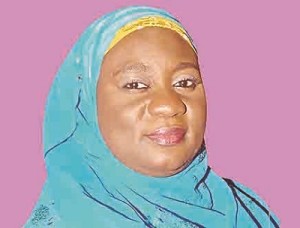 The wife of the Niger State governor, Dr. Amina Abubakar Bello, has decried the increase in cases of cancer in Nigeria even as she gave a panacea for the prevention of breast cancer among women in the country. The governor’s wife who is also a medical doctor said at the Fifth Chukker Breast Cancer Awareness campaign in Minna yesterday that cancer can be prevented with regular check-ups. While saying that breast cancer is common among women in Nigeria, she stated, “The type of cancer experienced in the country of recent is preventable and every woman needs to do regular check -ups to ascertain whether they have breast cancer or not”.
The wife of the Niger State governor, Dr. Amina Abubakar Bello, has decried the increase in cases of cancer in Nigeria even as she gave a panacea for the prevention of breast cancer among women in the country. The governor’s wife who is also a medical doctor said at the Fifth Chukker Breast Cancer Awareness campaign in Minna yesterday that cancer can be prevented with regular check-ups. While saying that breast cancer is common among women in Nigeria, she stated, “The type of cancer experienced in the country of recent is preventable and every woman needs to do regular check -ups to ascertain whether they have breast cancer or not”.
“What we are trying to do is to ensure that every ward in Niger State has at least one family healthcare centre that will be able to provide 24 hours service for preventive and therapeutic measures”. “We are embarking on a free breast cancer screening across the state. All we need to do is to increase the capacity of the family healthcare workers in the state”. Dr Bello explained that since the cost of cancer treatment is high, women should embrace preventive measures,
 The Guild of Medical Laboratory Directors has asked Nigerians to ascertain the authenticity and qualifications of any person who wants to run a laboratory diagnosis on them to check quackery. The guild said that most cases of conflicting and inaccurate results of laboratory tests arise when untrained and uncertified persons parade themselves as laboratory scientists. The chairman, Abuja chapter of the guild, Mr Mkpanam Ekanem, stated this yesterday when the directors visited LEADERSHIP headquarters in Abuja,saying the fraudsters are out there to discredit their profession.
The Guild of Medical Laboratory Directors has asked Nigerians to ascertain the authenticity and qualifications of any person who wants to run a laboratory diagnosis on them to check quackery. The guild said that most cases of conflicting and inaccurate results of laboratory tests arise when untrained and uncertified persons parade themselves as laboratory scientists. The chairman, Abuja chapter of the guild, Mr Mkpanam Ekanem, stated this yesterday when the directors visited LEADERSHIP headquarters in Abuja,saying the fraudsters are out there to discredit their profession.
He said, “We know there are people who were driven away from medical school after so many years and we know such persons know a lot. Most of them start up laboratory practice and the wrong results are what you get out of such places.” “If you go to a medical laboratory for an examination, and somebody wants to take your blood sample, ask him if he is a medical lab scientist. There is nothing wrong with that. If he is not one, he will be angry with you,” he said. According to Ekanem, Nigerians should start demanding that the right thing be done by the right persons as this will help professionals to rise up to their responsibility while stamping out quackery.






